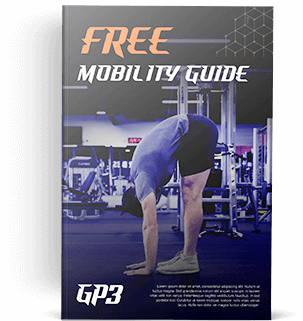Key Points:
1. For a multitude of reasons, those who use steroids have incentives to lie about it.
2. Particularly among young people, this dishonesty skews perceptions about what type of physique can be achieved naturally, which contributes to body dysmorphia.
3. The stigma around steroid usage resembles the one around marijuana–concern about health risks sprinkled with judgments about users’ moral character.
Estimated reading time: 5-10 minutes
Listen to this article on Spotify!
About a year ago, I took the plunge into a world that I’d long and somewhat unfairly derided as a cesspool. Which world am I referring to? That of Instagram fitness.
I’d only ever halfheartedly engaged with social media, and by the time I reluctantly admitted that an online presence would be helpful for the business I wanted to start, I’d averaged about two posts per year across all platforms since 2018. To be specific:
- Facebook: I never formally deleted but gave it up a long time ago.
- Twitter: Hadn’t tweeted since around 2015.
- Instagram: I’d check it maybe two minutes per week.
- Snapchat: I lost my password sometime in 2018 and never bothered recovering it.
- TikTok: I’m already too old for this, right?
- YouTube: I watched way too much of it but never created much content.
But, I dove in anyway, and spent parts of 2022 inconsistently creating content. Currently, my relationship with social media is a complicated one, combining laziness around posting, the self-awareness that nobody cares about what we post as much as we do, a desire for external validation by hoping that people will care, and insecurities around fearing that they won’t.
That said, I’ve been pleasantly surprised by and grateful for some of the wisdom I’ve found and connections I’ve made. So, I can no longer unequivocally say that the world of Instagram fitness is trash. It’s also provided me with the inspiration for today’s topic.
A Meteoric Rise
In 2022, an influencer named Brain Johnson, who went by the handle “Liver King,” amassed over five million Instagram and TikTok followers in a little over a year. He largely accomplished this due to his antics, attitude, and ridiculously muscular physique. He was also very obviously taking steroids, but refused to admit it.
Despite months of vehement denials, leaked emails revealed he was consuming over $11,000 worth of steroids per month. When the evidence became too damning, he eventually admitted the truth. As a quick side note, I’m very late to the party here. This revelation occurred in December of 2022, so writing about it in March of 2023 may well be a decade too late on the social media timescale. But, I’m not interested in breaking a story or “exposing” anyone here.
I’m more intrigued by unpacking the motivation behind the entire saga.
The Steroid Stigma
First, let me share my personal feelings about steroid use. I don’t care if anyone uses them. In fact, I assume that just about every athlete, famous male actor, and person who makes their living based off of the appearance of their physique is using performance-enhancing drugs (PEDs) of some kind. Studies show their prevalence, with as many as four million users in the United States alone.
For this reason, I think the government should go ahead and legalize steroids. This way, they can be better regulated, taxed, and used safely by those of an appropriate age who have been informed about the risks.
Instead, our current approach resembles misguided abstinence-only sex education. Pretend nobody’s doing it and ignore the problems or blame them on a lack of moral fiber. And quite frankly, that’s BS.
So, why does this stigma persist?
In large part, this stigma stems from a general lack of knowledge about strength training in general. The uninformed but prevailing view seems to be that using steroids means that someone who has never worked out a day in their life could take PEDs, and with a few weeks to months of minimal effort, they’d have a physique worthy of a Greek god. But, here’s the thing. That’s simply not true.
Arguably the key benefit of using steroids is the degree to which it speeds recovery between intense training sessions. For example, after particularly taxing workouts on my journey to the world record for Nordic Hamstring curls, I genuinely needed five days between sessions for my legs to fully recover. Trying to train them again during that time frame would have increased my risk of injury and decreased my overall performance.
However, had I been taking certain forms of “Vitamin S,” I could likely have worked my hamstrings equally hard the very next day. So, what steroids actually do is allow you to work harder than you normally could, without increasing your risk of excess fatigue or injury. This greater volume of work plus the unnaturally high level of anabolic, muscle-building hormones present in the body allow for larger and quicker gains in strength and muscle mass than would otherwise be possible.
But, steroids are viewed by most as “cheating” or “taking the easy way out.”
Perhaps some of this stems from baseball in the 90’s and early 2000’s, when Barry Bonds, Mark McGwire, and Sammy Sosa were launching an anabolic-assisted assault on hallowed home run records, but suffice it to say that in general, the public still views steroid use pretty negatively. Now, these drugs are still illegal, and they certainly come with detrimental health consequences, but as I said earlier, we’re collectively burying our heads in the sand here. Steroid usage isn’t going away.
Plus, the perception that “steroids are cheating” has consequences.
Due to all of this, those who use steroids have strong incentives to lie about it. And once again, identity is a key culprit. I’ll make a broad generalization here, but I imagine that many people who cover up illicit steroid use do not want to be perceived as having taken a shortcut. In fact, many of them likely work incredibly hard on their physiques, harder than most of us would be able to understand.
So, when faced with the question, “Are you on steroids?” asked in a judgmental tone, the choice for many is clear. It’s way easier to say “no” than to try to explain what I wrote above, about PEDs increasing work capacity and shortening recovery time, thus allowing for more weekly training volume. The average person won’t really understand or care, and will still discredit the work the steroid-user has done. So, the deception persists.
This creates a vicious cycle.
I believe concealed steroid use must be a contributing factor to body dysmorphia. When the perception of what’s achievable naturally is so dramatically skewed, it’s easy to feel inadequate by comparison. Throw in social media’s known detrimental effects on self-image, and we have a recipe for unhappiness. Steroids promise that ever-so-enticing notion of a surefire solution, and it makes sense that their use would skyrocket.
But. here’s the problem. Steroids don’t fix body dysmorphia. Even for the aforementioned Liver King. In some of his leaked emails and in multiple videos, he engages in fairly aggressive negative self-talk about his “love handles.” It’s been well-established that we perceive negative voices as the loudest, but I can’t imagine too many people would look at his physique and see excess body fat around the midsection.
There’s a tragic irony to this, because one of Liver King’s stated missions was to empower men to take control of their bodies and lives, thus feeling better about themselves. Sadly, by deceiving the public about what type of physique can be achieved naturally, he probably did the opposite in many cases. All while still suffering at the metaphorical hands of his own self-image demons.
And here’s where I think we find the most insidious problem with steroid use. The lack of transparency around it creates a problem that steroids promise to fix, except they can actually make things worse…with health risks to boot.
Perhaps legalizing their usage could be accompanied by requiring not only a physician’s consultation to address the physical health risks, but mandatory sessions with a mental health professional, as well. They could discuss the applicant’s desire for using these drugs, as well as the challenges that will be faced during and after a cycle.
Where do we go from here?
At the end of the day, I believe the stigma around steroids is somewhat similar to the one around marijuana. It’s mostly based on outdated and incorrect perceptions about users’ moral character. Plus, steroid use is so prevalent that we might as well tax it, make some revenue, and be better equipped to inform people about the health risks. We’d also stop needlessly affecting impressionable young people’s perceptions about what type of body can be achieved through exercise alone.
Then we can also give credit to those who achieve a world-class physique through steroid usage for their hard work. All these changes make sense, because really, where else do we let the perceptions of the least educated influence the way we discuss and legislate a topic?
Oh, right. Politics.
But that’s one cesspool I’m sure I want to avoid.Before you go, I’d love to hear from you. What are your thoughts about steroid usage? Do you know anyone who has tried them? Do you think problems related to steroid usage would become better or worse after legalization? Reply to this email and let me know!

